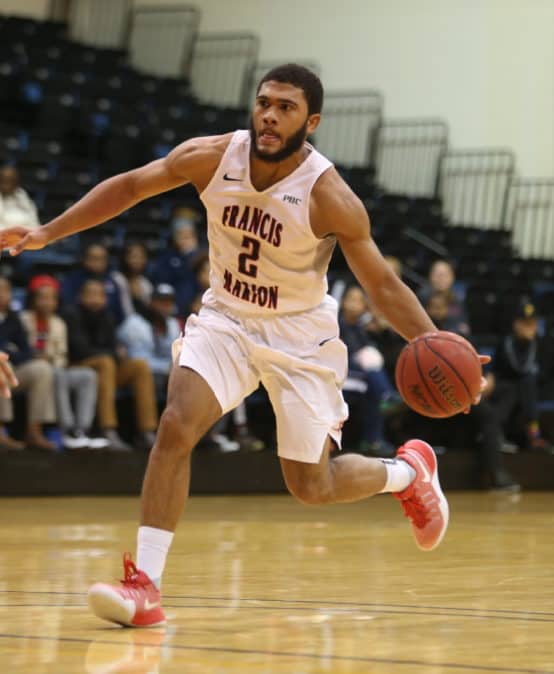
Dr. Matthew Hagler
Assistant Professor of Psychology
Clinical/Counseling Option Coordinator
Office: CEMC 109-B
Phone: 843-661-1574
Matthew.Hagler@FMarion.edu
Dr. Matthew Hagler completed his Bachelor of Arts in Psychology and English from Sewanee, the University of the South, a Fulbright fellowship at Muğla Sıtkı Koçman Üniversitesi in Turkey, and his Master of Arts and Doctor of Philosophy in Clinical Psychology from the University of Massachusetts Boston. His graduate work was supported by a Graduate Research Fellowship from the National Science Foundation. Following graduate school, Dr. Hagler completed two years of full-time clinical training as a predoctoral intern and postdoctoral associate at the Yale School of Medicine. He earned his South Carolina license in clinical psychology and joined the faculty at Francis Marion University in 2022.
Dr. Hagler’s research investigates the antecedents, processes, and outcomes of social support. Much of this work has focused on intergenerational mentoring relationships between youth and non-parent adults – including formalized relationships within organized youth programs (e.g., Big Brothers Big Sisters) and bonds that arise organically within families, schools, extracurricular activities, and communities. His research is highly interdisciplinary, utilizing both quantitative and qualitative methods while integrating clinical, community, educational, and developmental psychology. Dr. Hagler maintains an active research lab and encourages interested undergraduate and graduate students to contact him about current opportunities. He accepts doctoral student mentees in FMU’s PsyD program (typically one student per annual admissions cycle).
Clinically, Dr. Hagler is a generalist and works across the lifespan. He treats children, adolescents, young adults, adults, and families from diverse backgrounds with a range of concerns, including mood, anxiety, stress, trauma, sleep, substance use, psychosis-spectrum, neurodevelopmental, and relationship difficulties. He has a particular interest in supporting recovery from complex trauma and mitigating risk for developing serious mental illness (SMI) among adolescents and young adults. His theoretical orientation integrates cognitive-behavioral, mindfulness/acceptance-based, and relational-cultural approaches. Dr. Hagler also specializes in adapting evidence-based assessment and interventions to virtual modalities, and he is certified to practice telepsychology with clients located in most US states through PSYPACT.
Selected/Representative Publications:
Hagler, M., Jones, K., Anderson, A., McQullin, S., Weiler, L., & Sánchez, B. (2023). Striving for safety, impact, and equity: A critical consideration of AJCP publications on formal youth mentoring programs. American Journal of Community Psychology. DOI: 10.1002/ajcp.12702
Hagler, M., Johnson, R., Snipe, L., & Boags, J. (2023). A qualitative thematic analysis of first-generation college students’ help-seeking attitudes and behaviors during their first year. Journal of College Student Retention: Theory, Research & Practice. DOI: 10.1177/15210251231198006
Hagler, M.A., & Poon, C. Y. S. (2023). Contextual antecedents and well-being indicators associated with children’s and adolescents’ access to supportive non-parent adults. Journal of Community Psychology. DOI: 10.1002/jcop.23016
Hagler, M. A. (2023). Mentoring first-generation college students: Examining distinct relationship profiles based on interpersonal characteristics, support provision, and educational capital. Journal of Community Psychology. DOI: 10.1002/jcop.23003
McQuillin, S. D., Hagler, M. A., Werntz, A. & Rhodes, J. E. (2022). A framework for integrating paraprofessional mentors into youth-serving services and institutions: Practical, ethical, and scientific considerations. American Journal of Community Psychology. DOI: 10.1002/ajcp.12546
Hagler, M. A., Christensen, K., & Rhodes, J. E. (2021). A longitudinal investigation of first-generation college students’ mentoring relationships during their transition to higher education. Journal of College Student Retention: Theory, Research & Practice. DOI: 10.1177/15210251211022741
Hagler, M. A., McQuillin, S. D., & Rhodes, J. E. (2020). Ideological profiles of U.S. adults and their support for youth mentoring. Journal of Community Psychology, 48(2), 209-224. DOI: 10.1002/jcop.22247
Christensen, K., Hagler, M., Stams, G. J., Raposa, E. B., Burton, S., & Rhodes, J. E. (2020). Non-specific versus targeted approaches to youth mentoring: A follow-up meta-analysis. Journal of Youth and Adolescence, 49, 959-972. DOI: 10.1007/s10964-020-01233-x
Hagler, M., Zwiebach, L., Rhodes, J. E., & Rappaport, C. D. (2019). Mentoring interventions for children of incarcerated parents. In J. M. Eddy & J. Poehlmann-Tynan (eds.), Handbook on Children of Incarcerated Parents, Second Edition (pp. 205-217). Springer. DOI: 10.1007/978-3-030-16707-3_14
Hagler, M., & Rhodes, J. E. (2018). The long-term impact of natural mentoring relationships: A counterfactual analysis. American Journal of Community Psychology, 62(1-2), 175-188. DOI: 10.1002/ajcp.12265
Hagler, M. (2018). Processes of natural mentoring that promote underrepresented students’ educational attainment: A theoretical model. American Journal of Community Psychology, 62(1-2), 150-162. DOI: 10.1002/ajcp.12251
